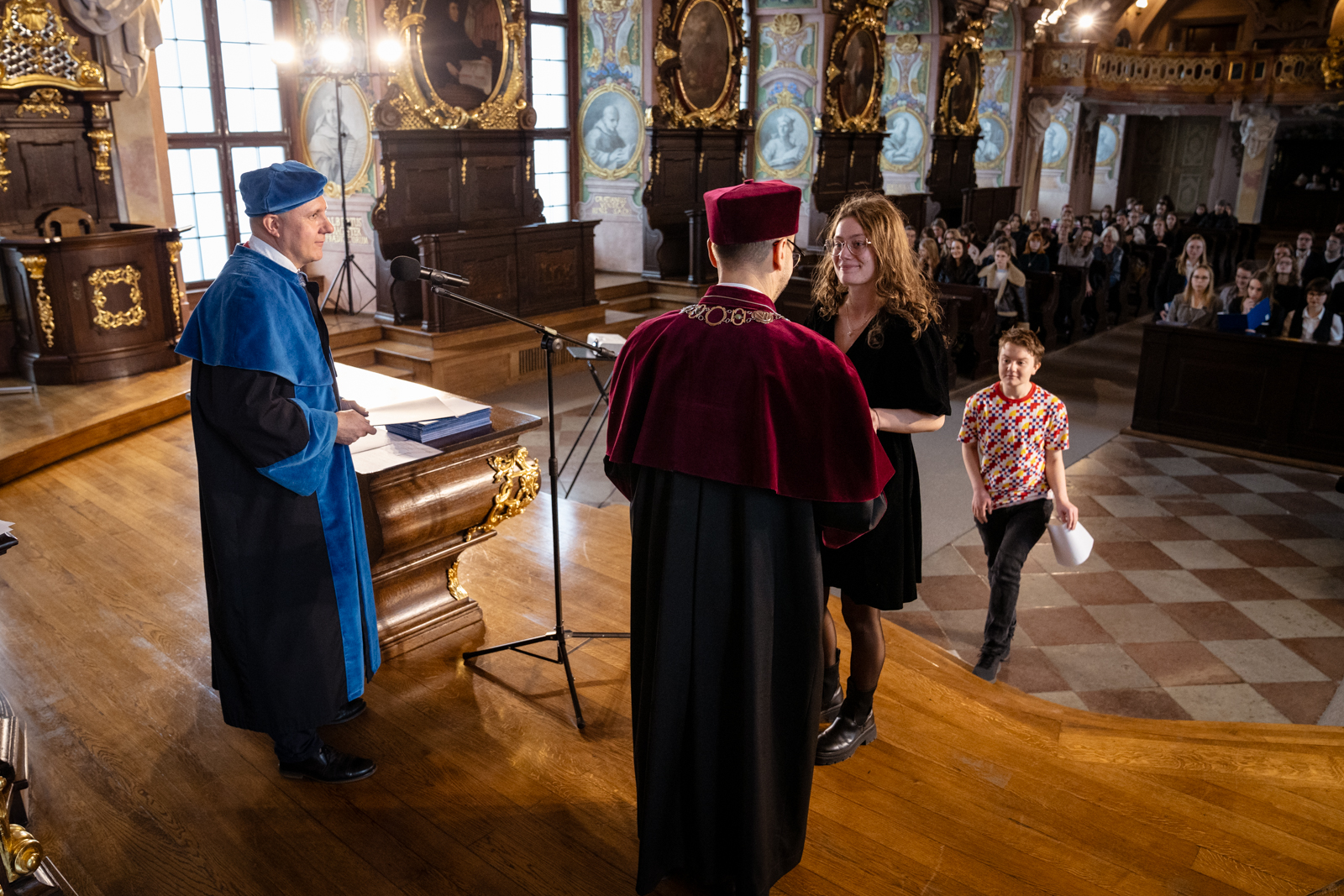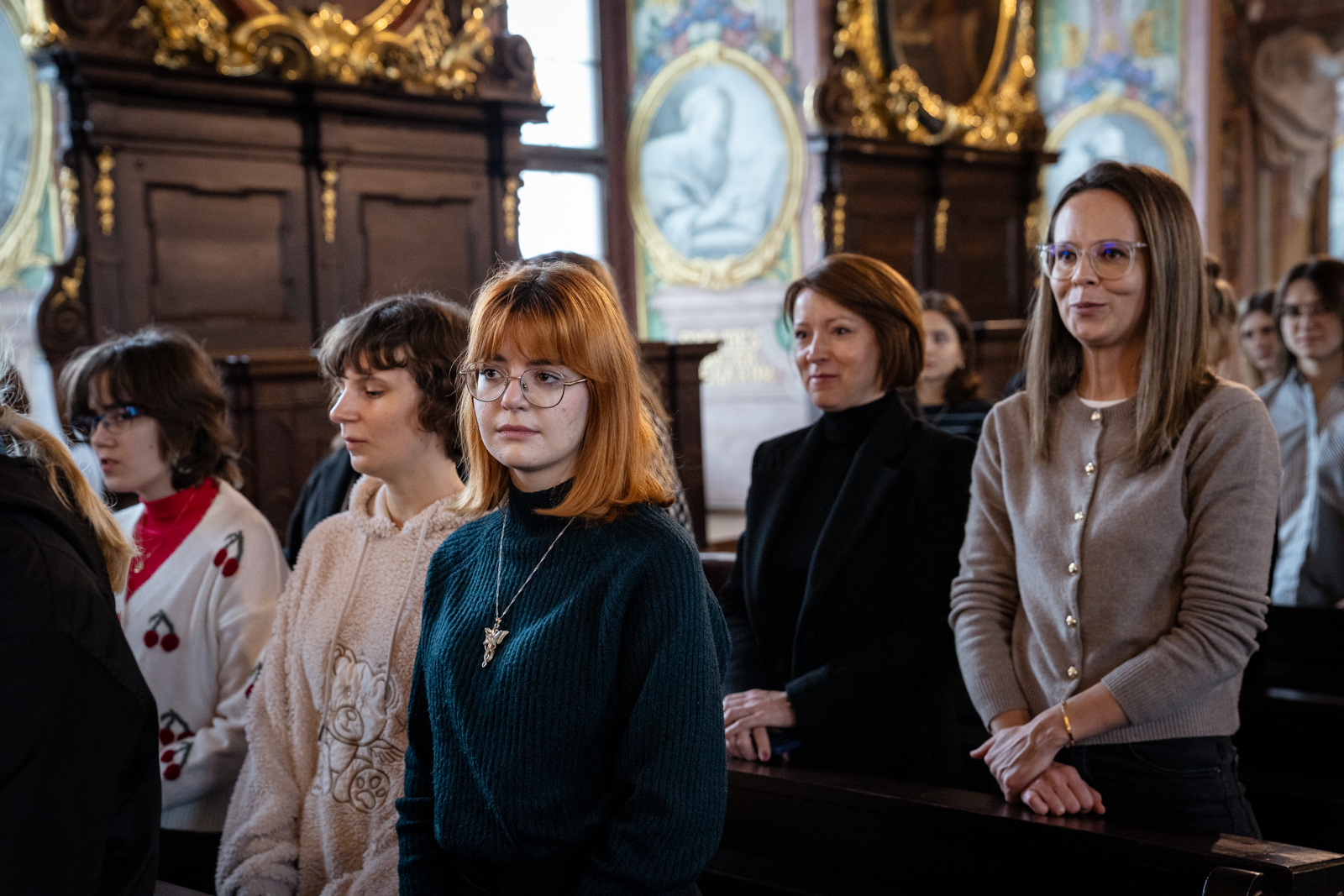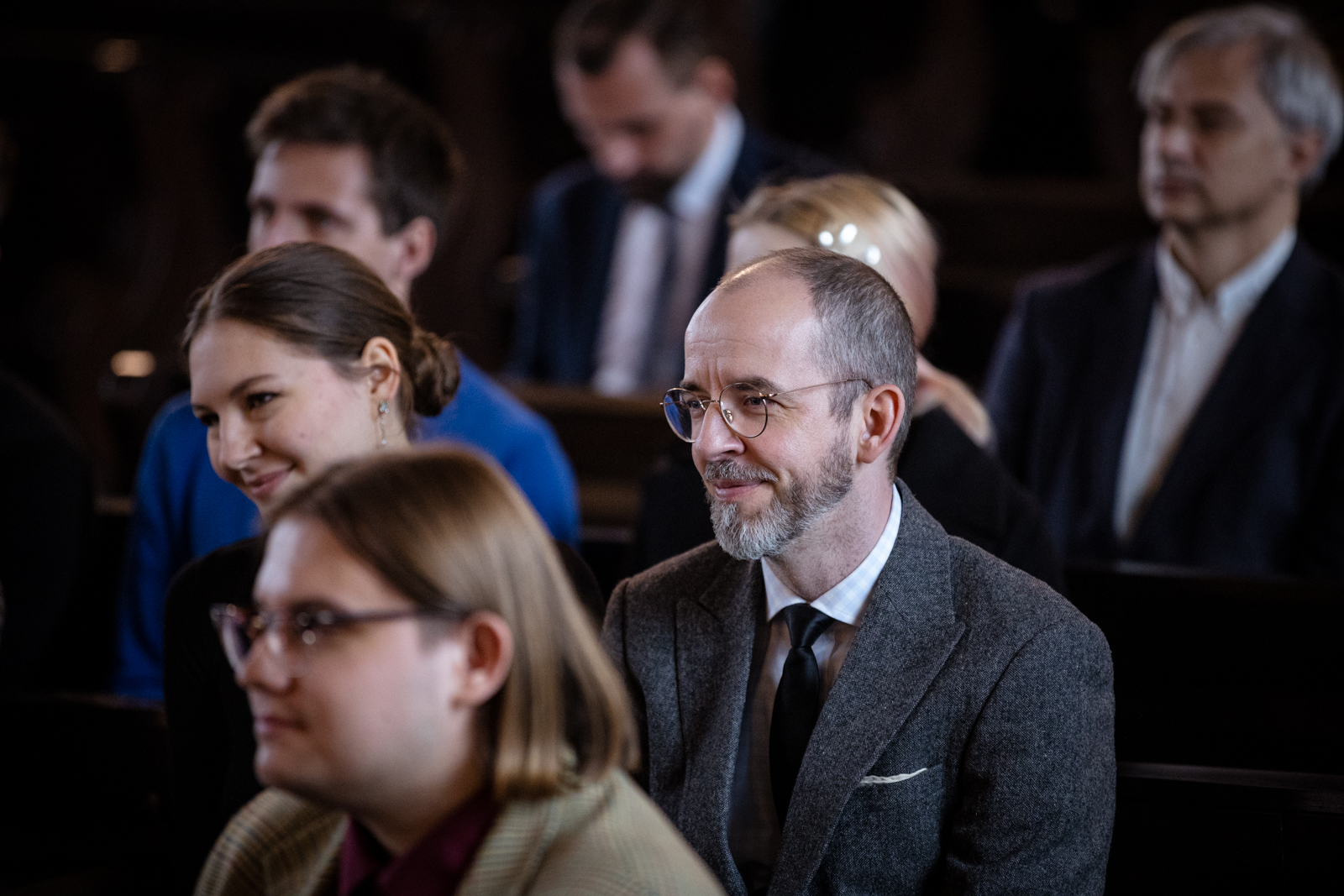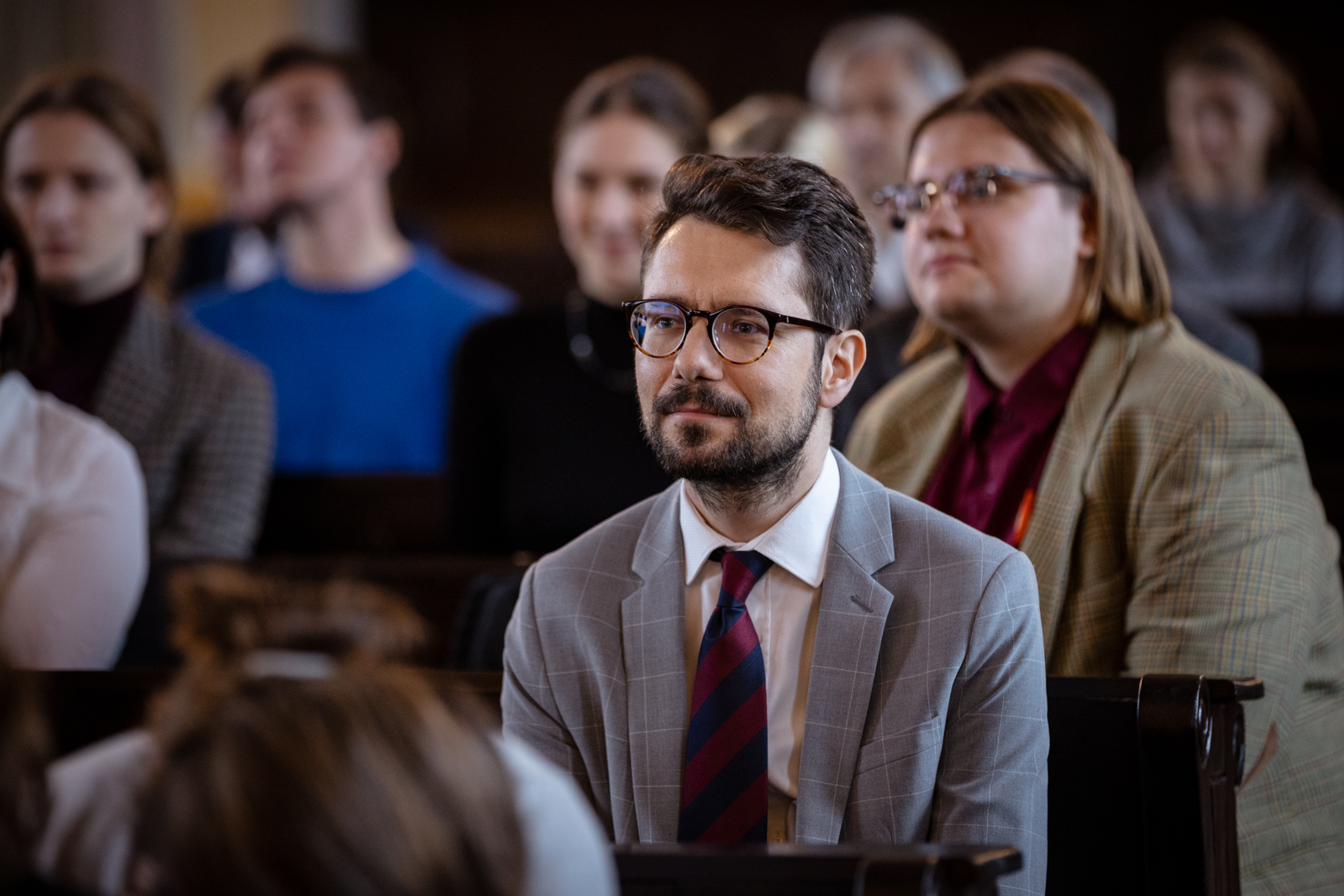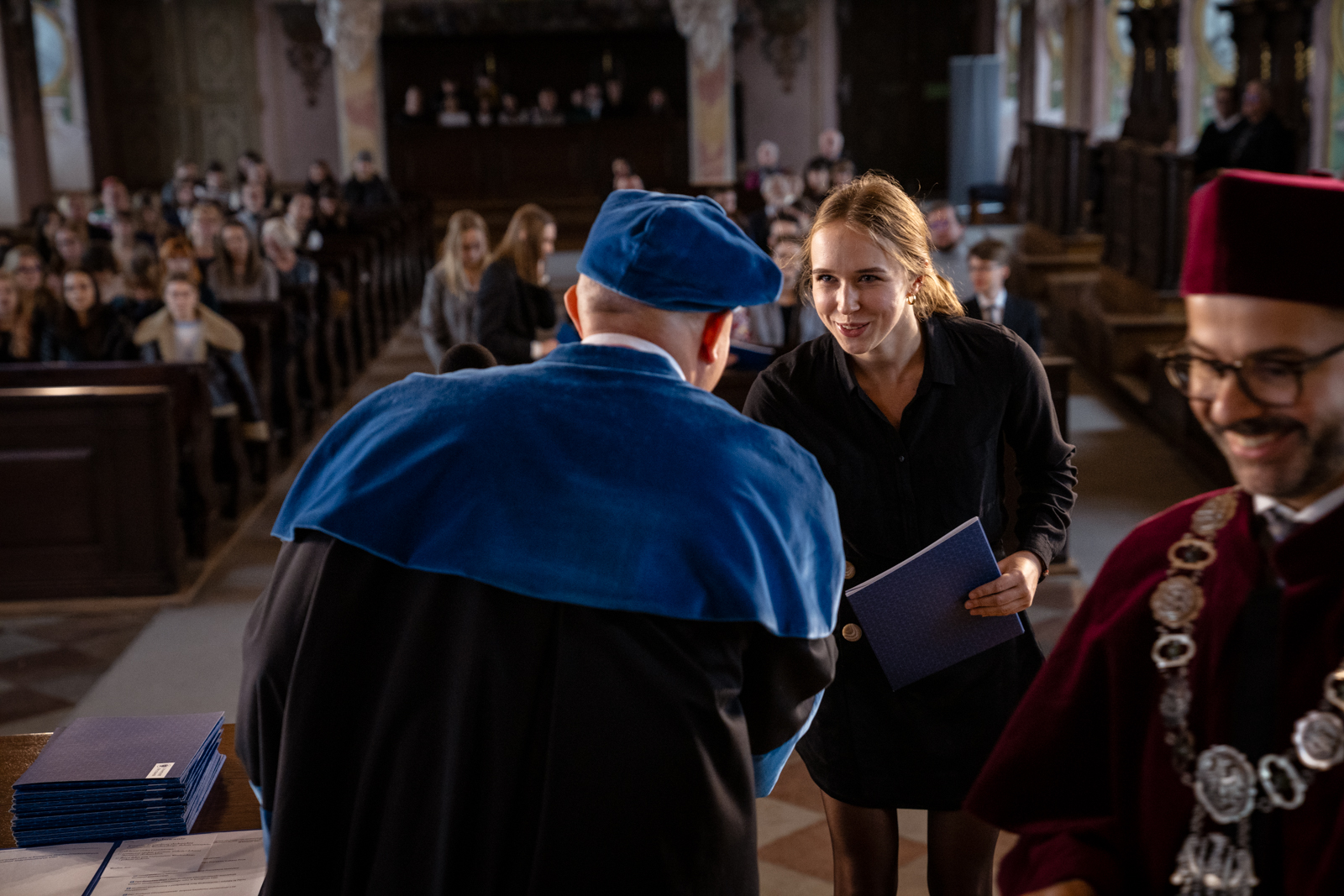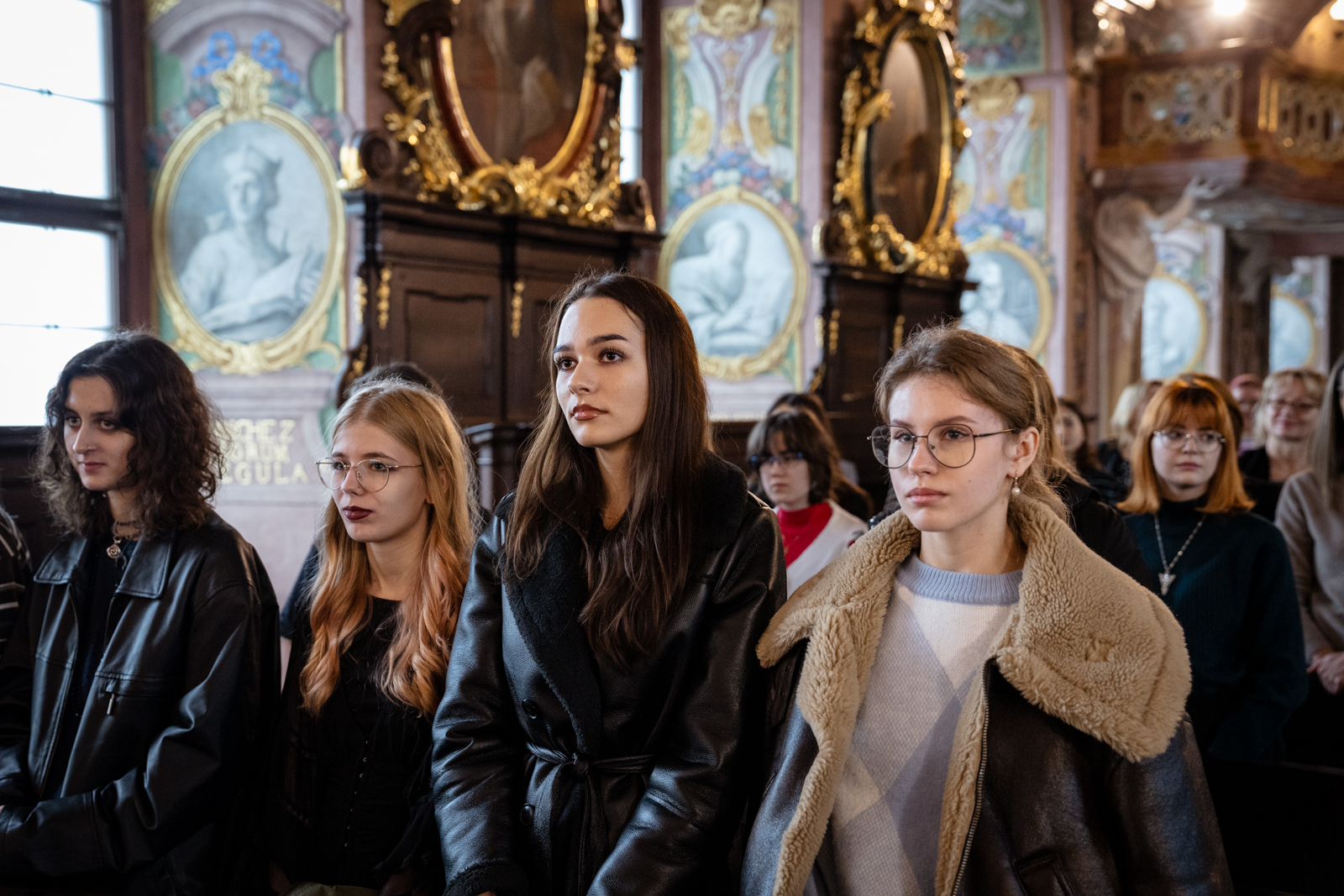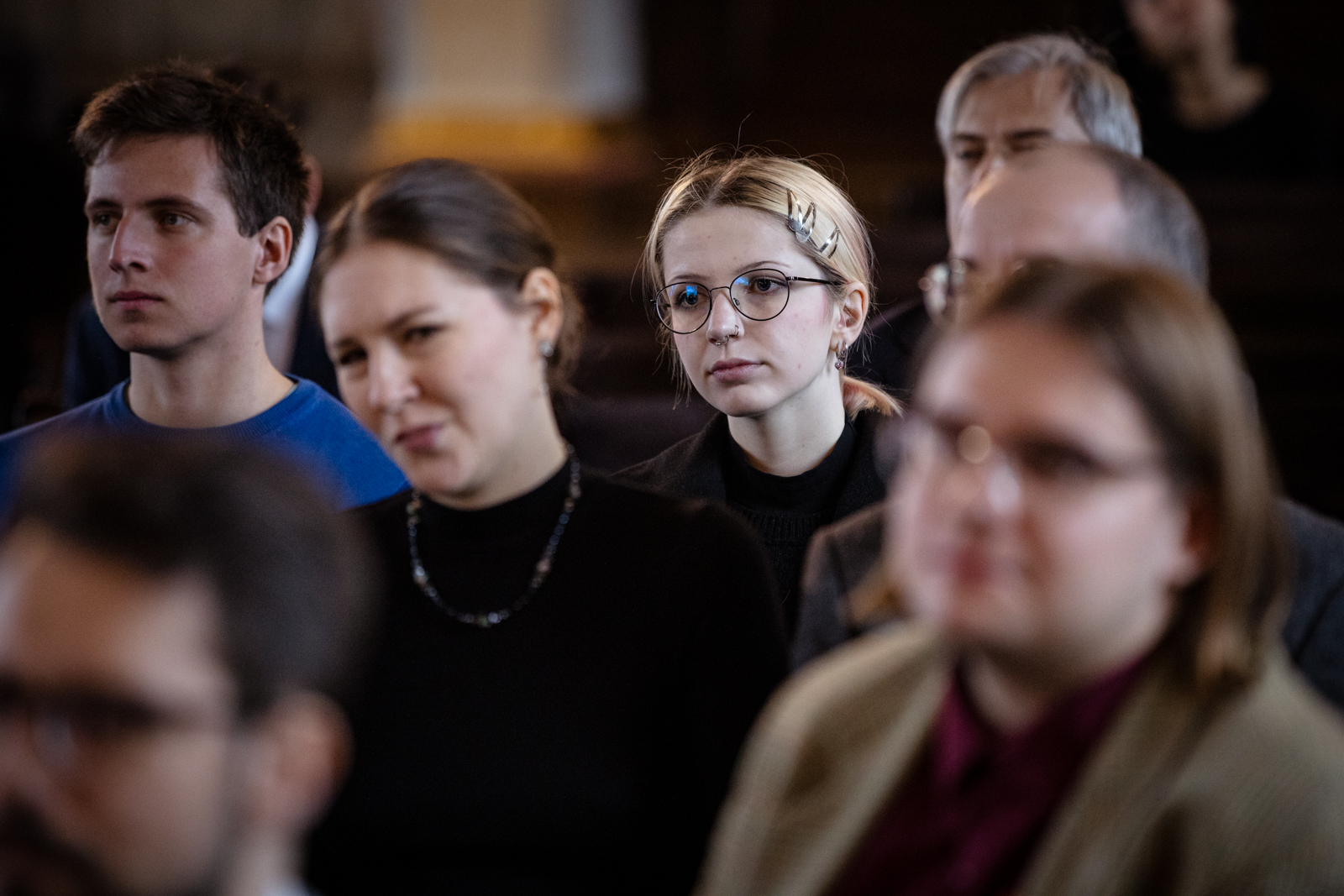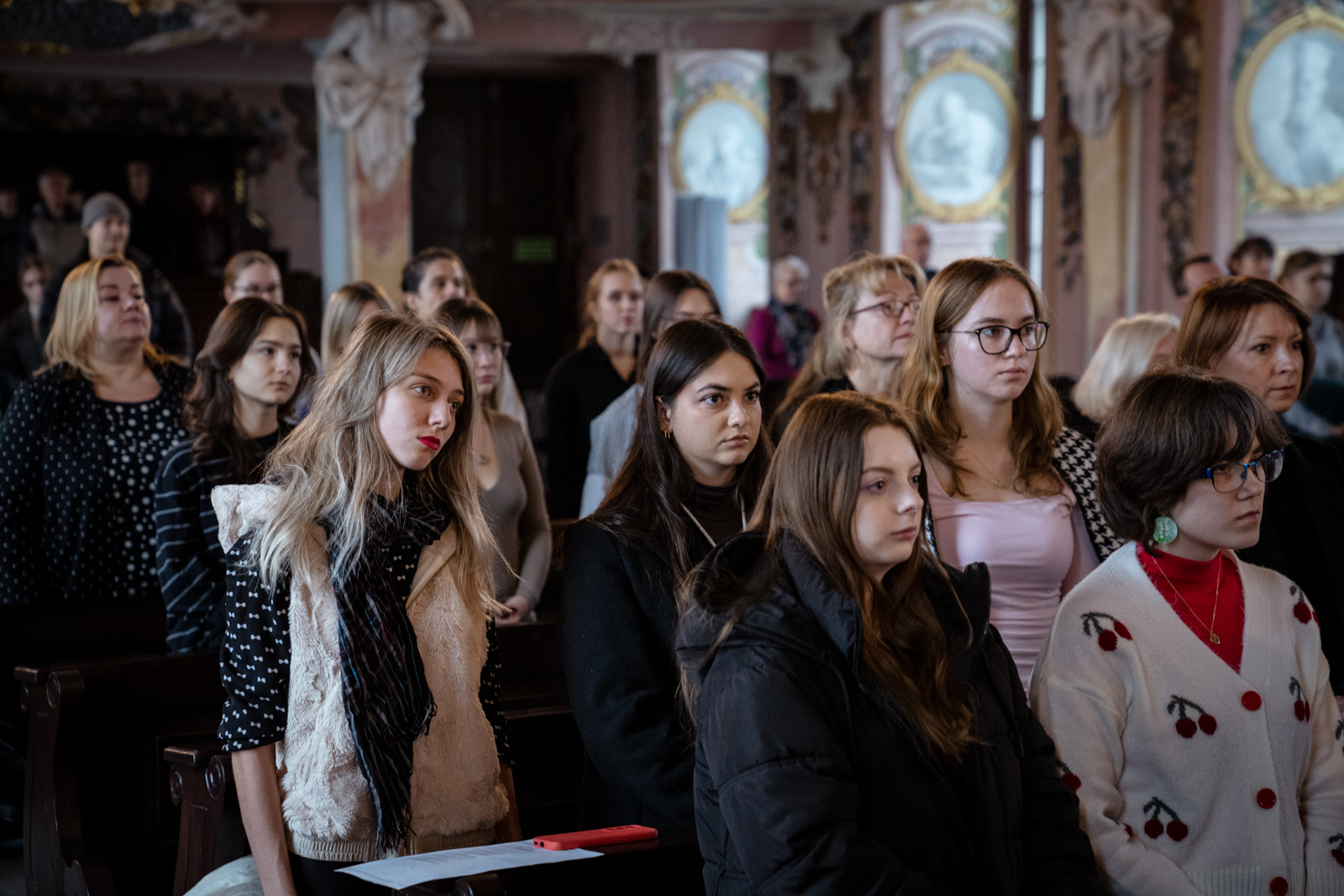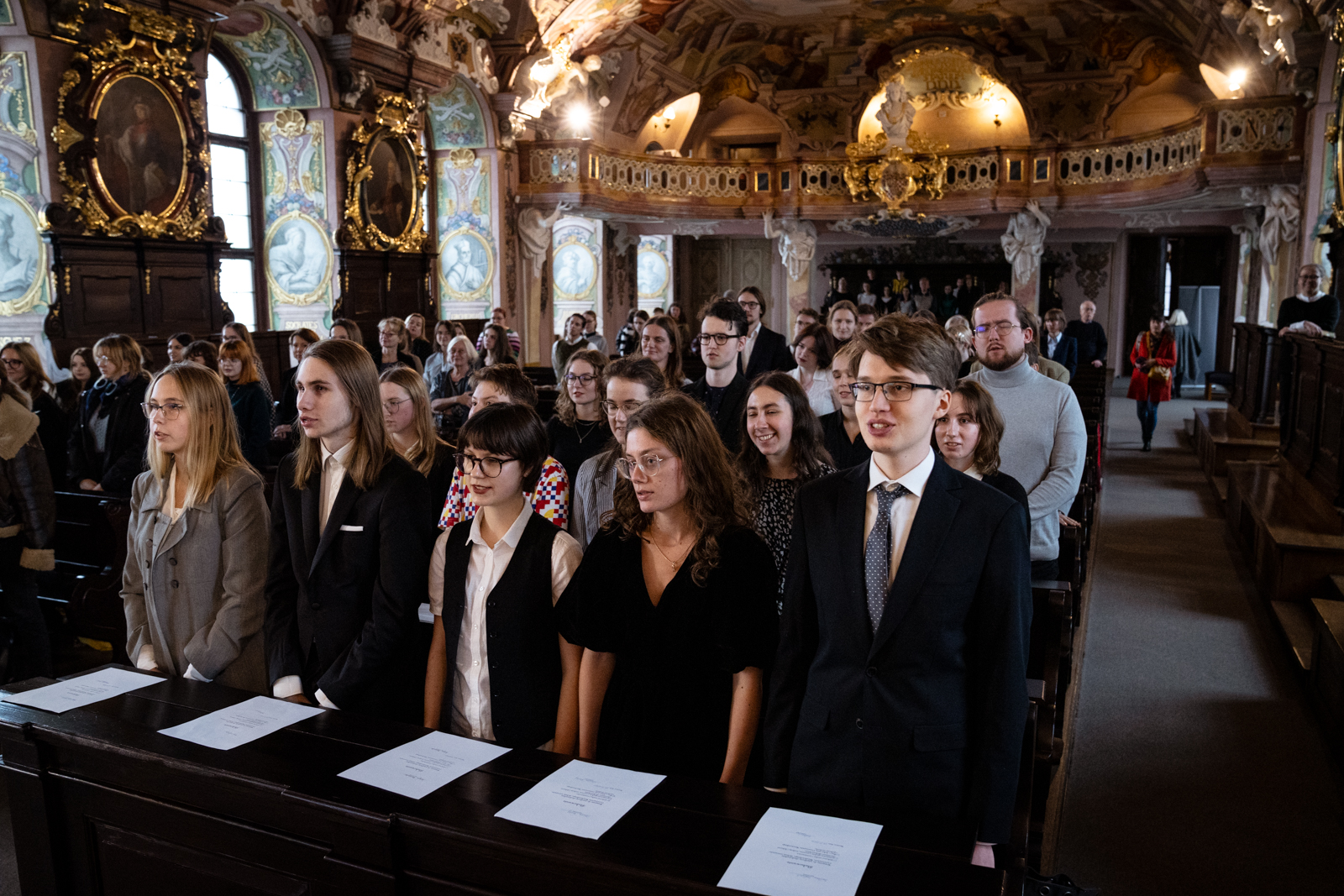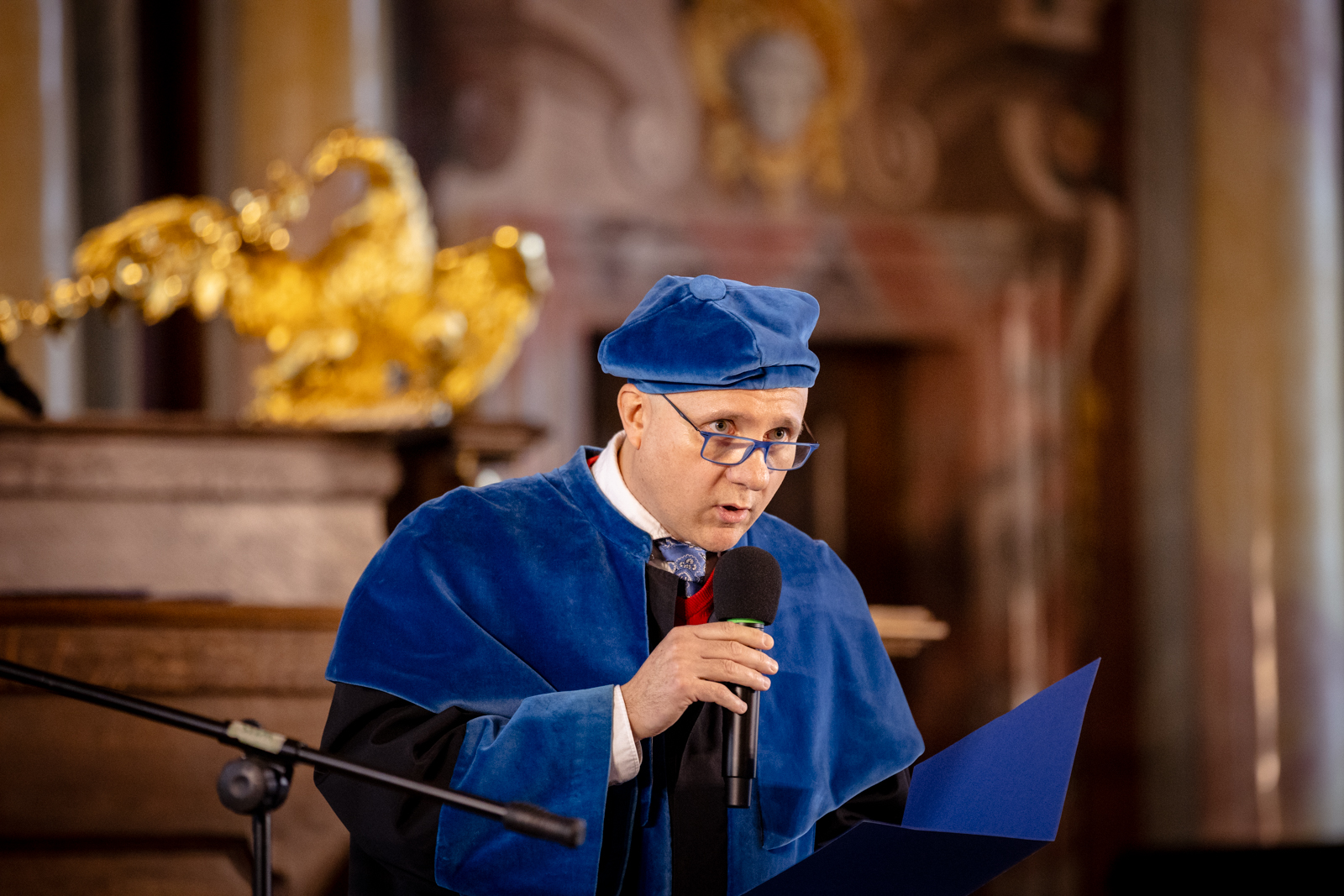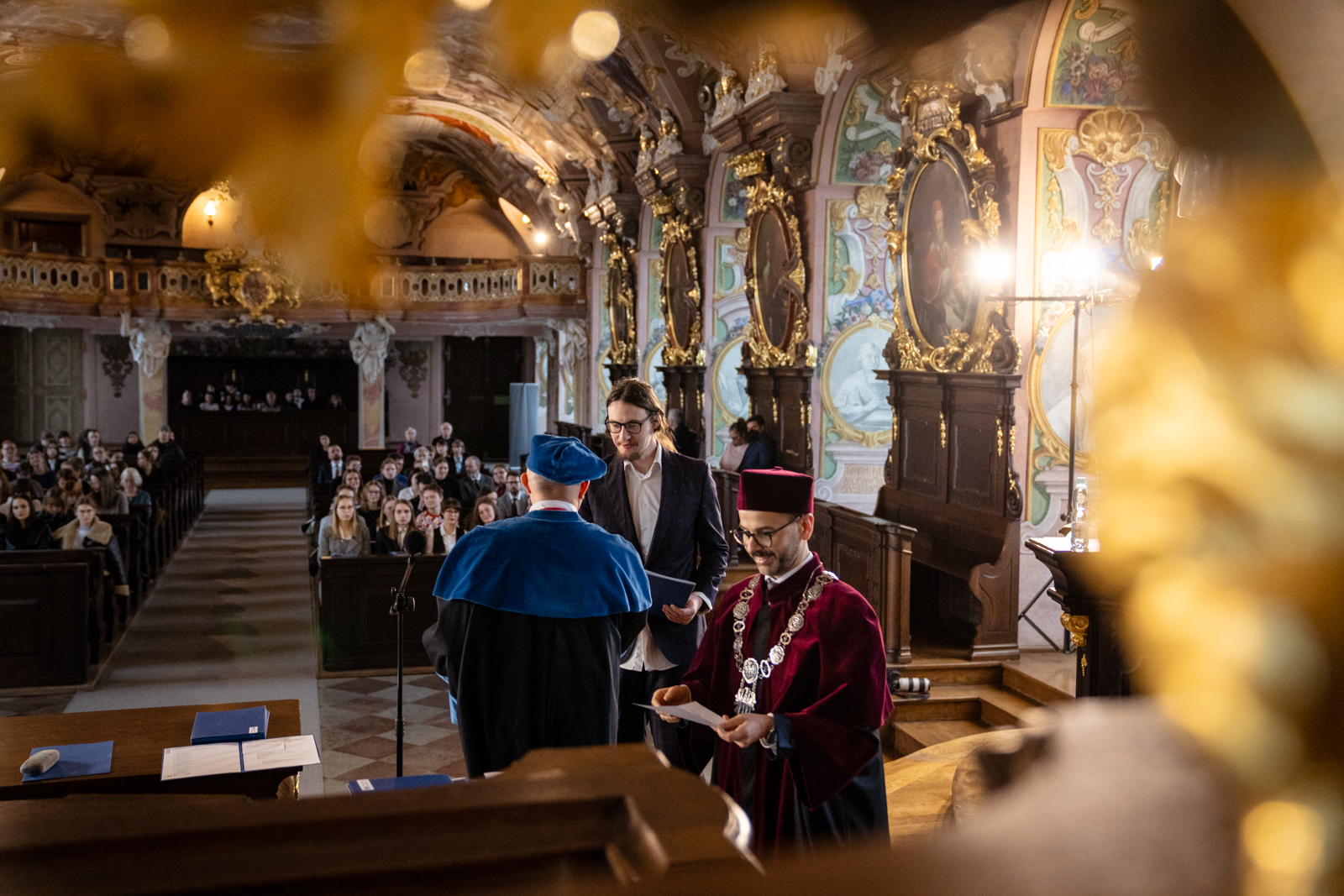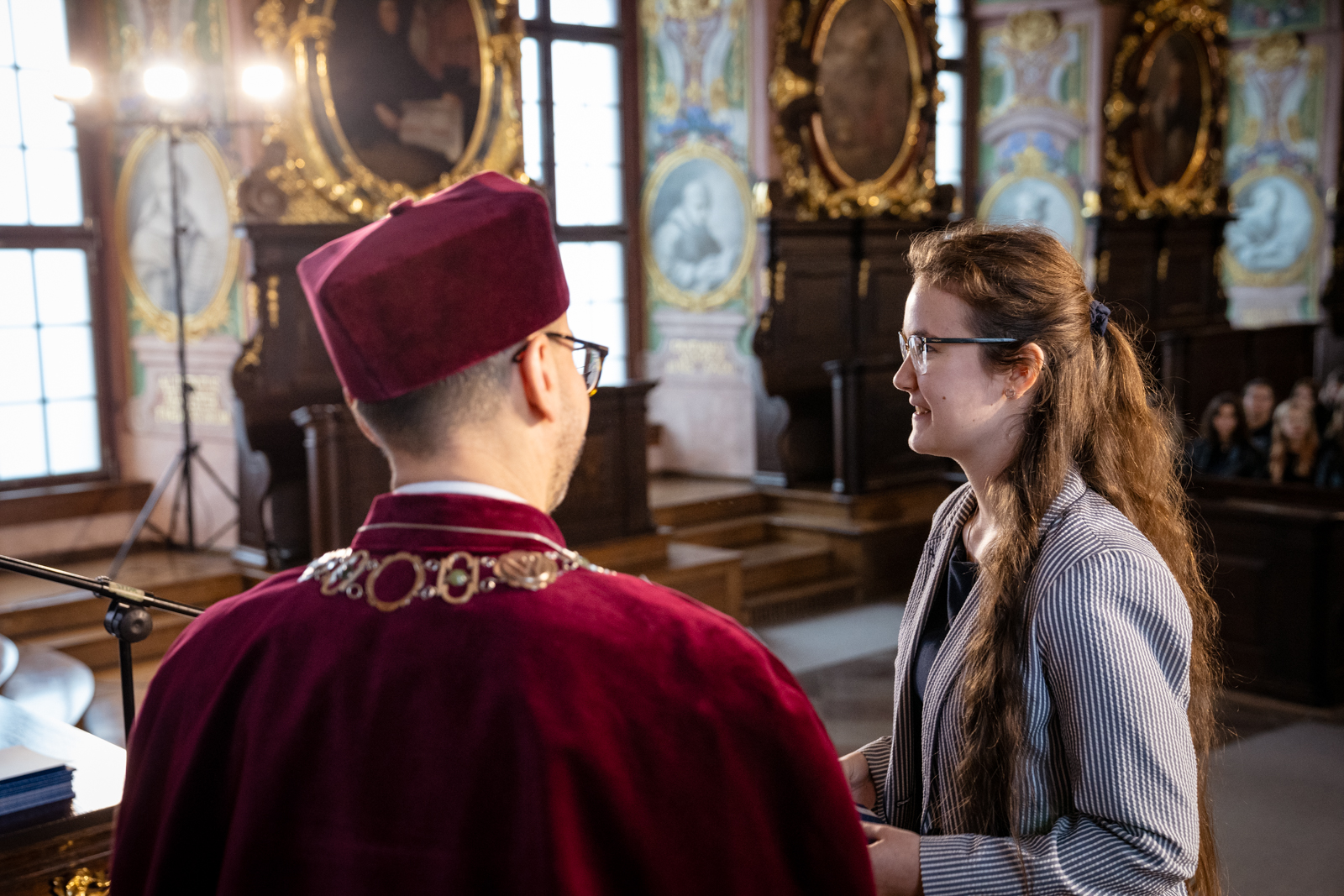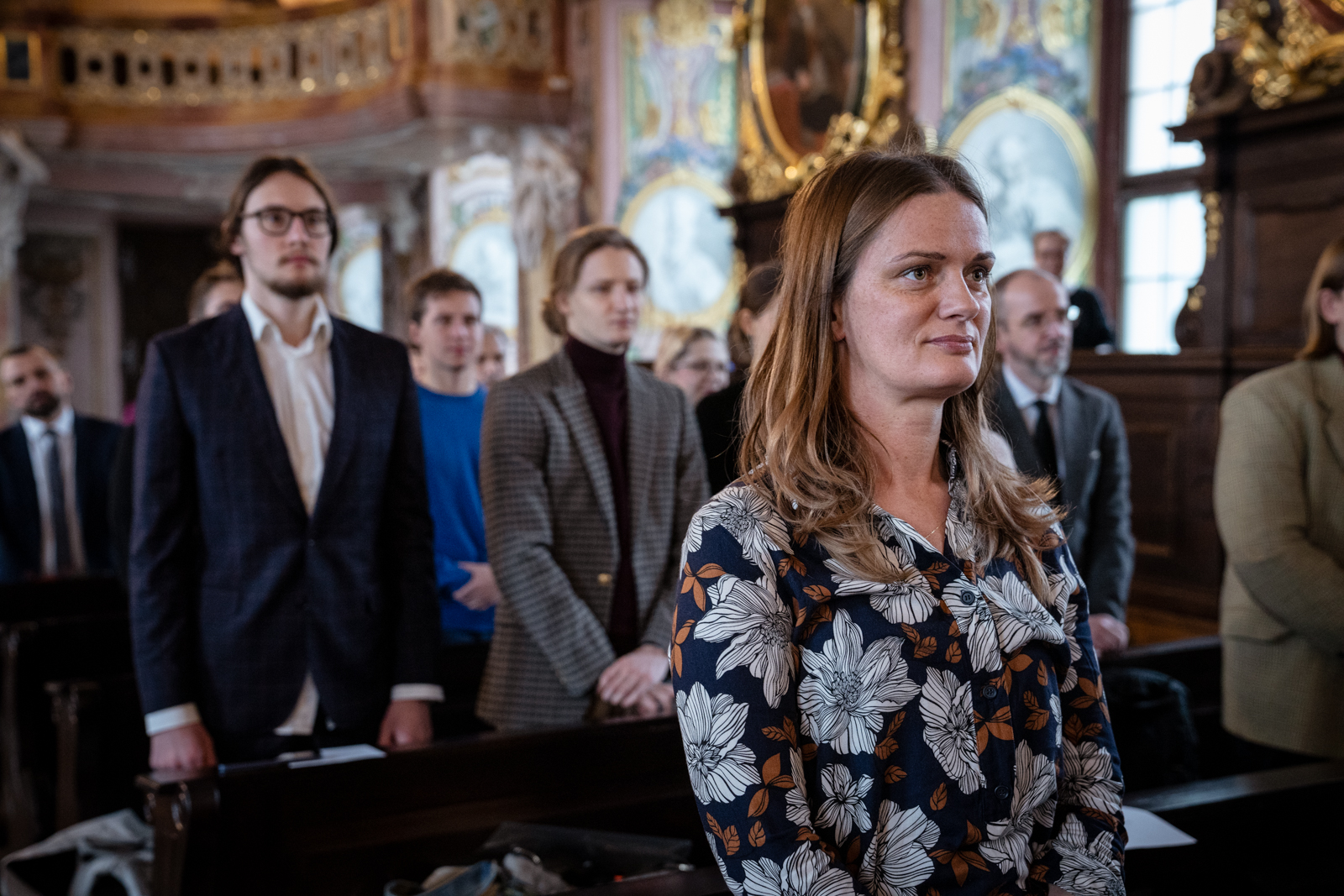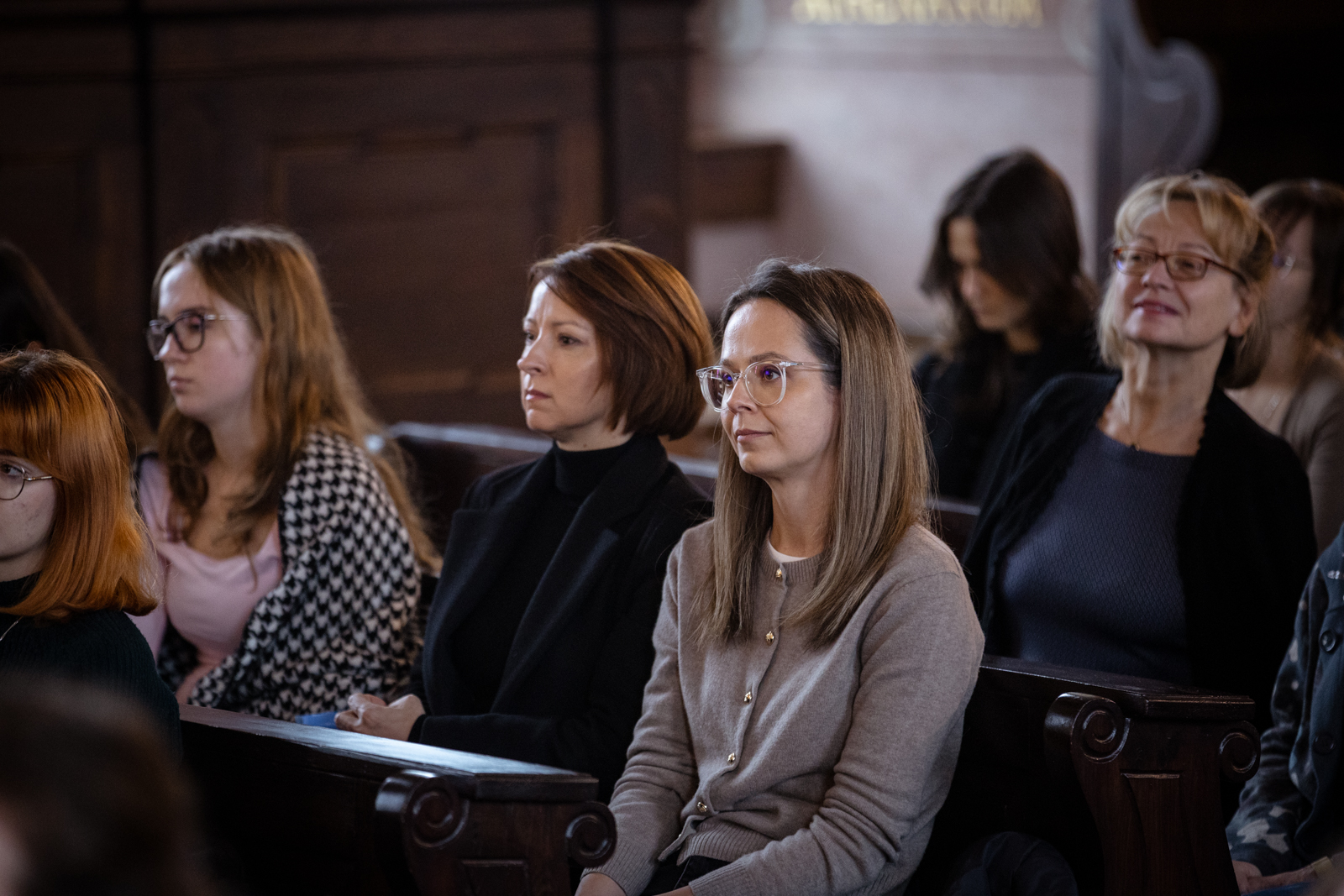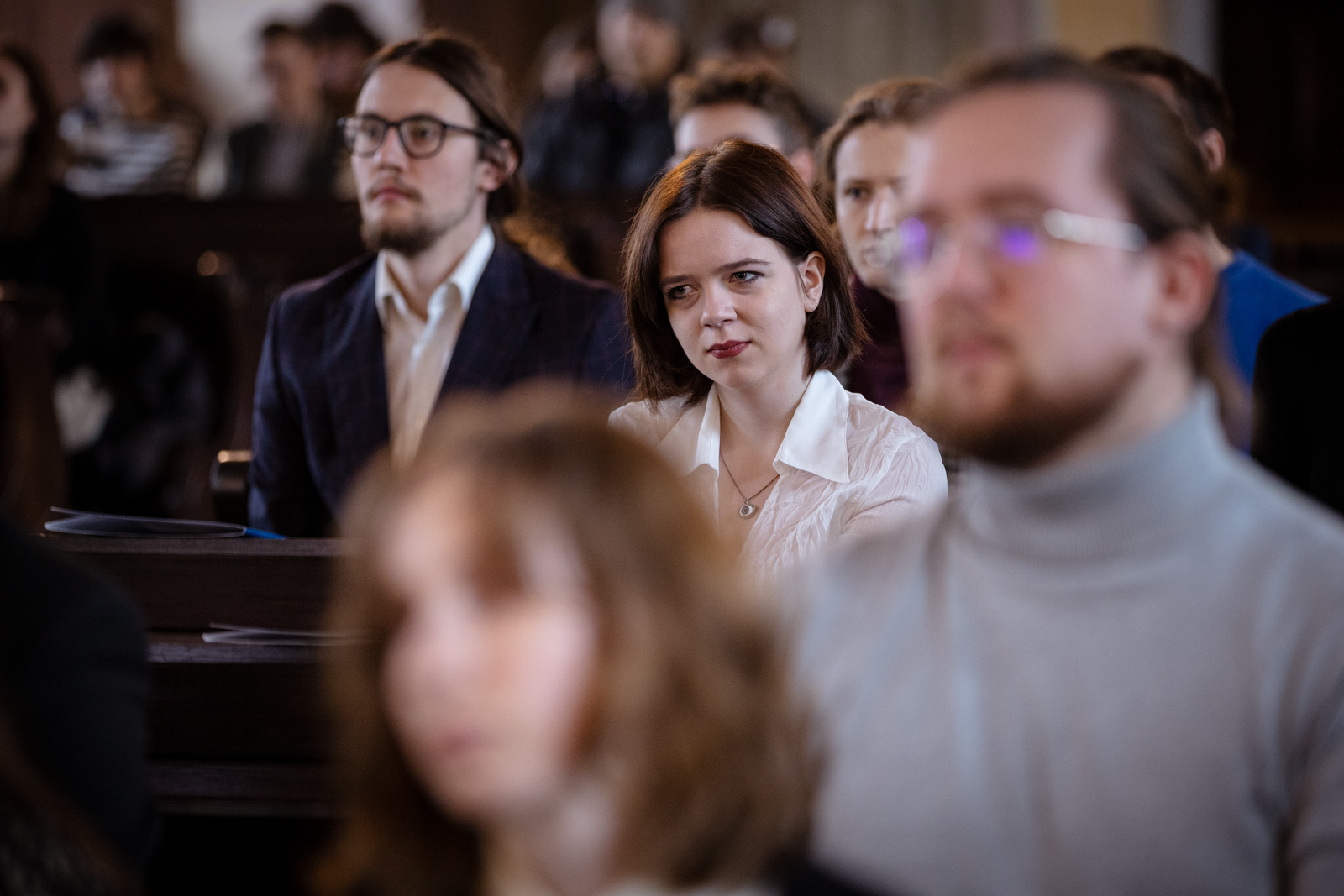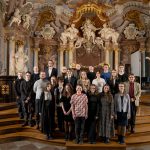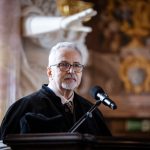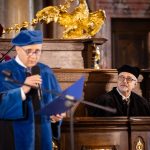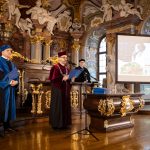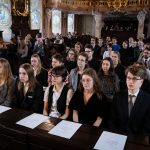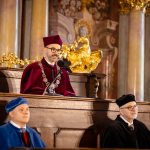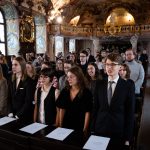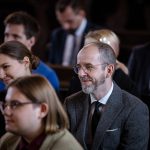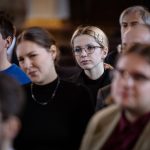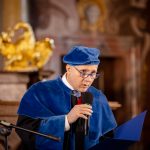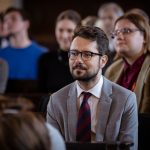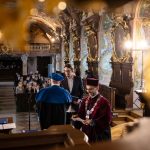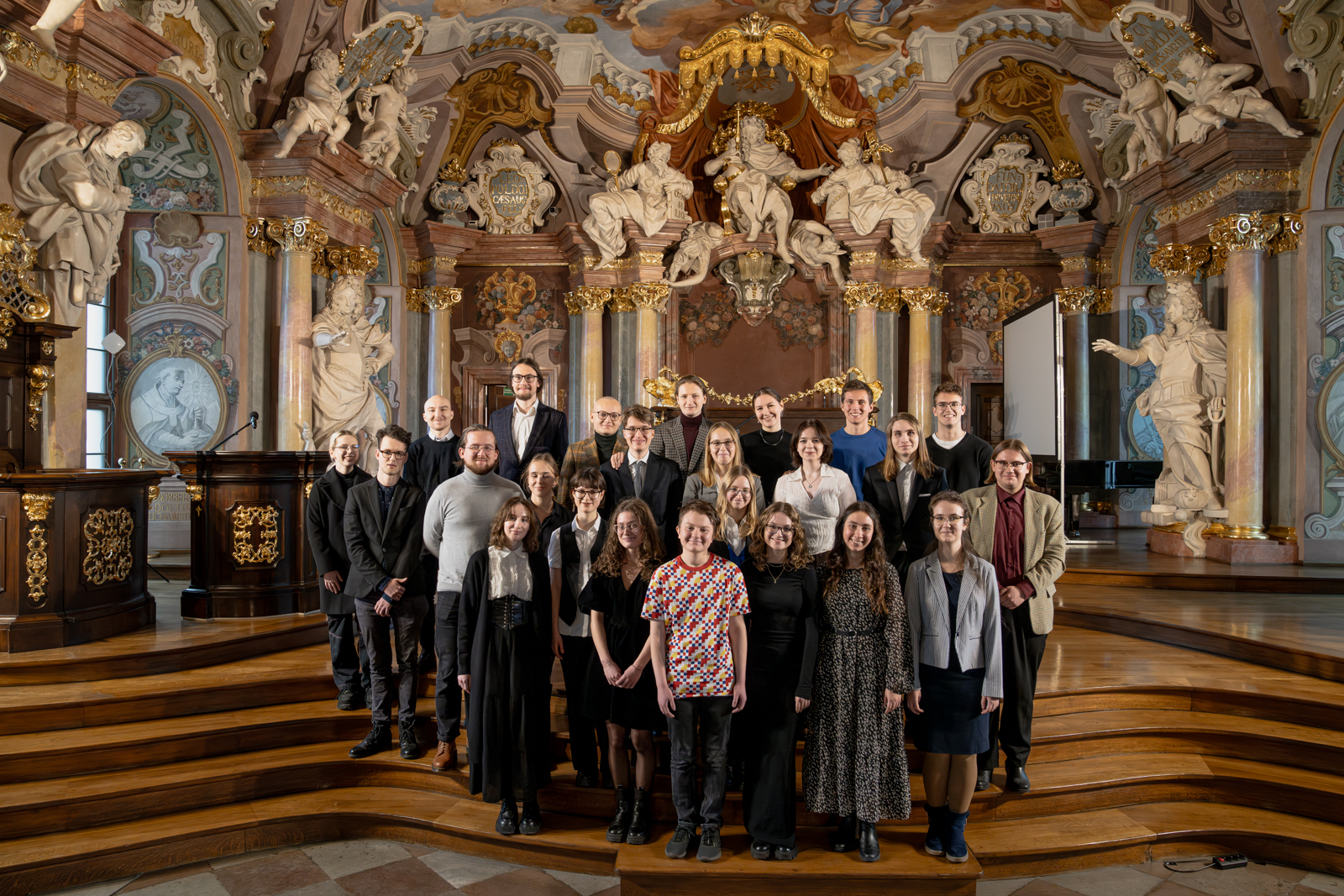
“PHILOLOGY – or the ‘salvific handrail’ that the PHILOLOGIST holds on to” – inauguration at the MSI College, November 28, 2024
On November 28, 2024, the official inauguration of the 2024/2025 academic year, combined with the matriculation of first-year students of the UWr College for Interdisciplinary Studies (Kolegium MSI), took place at the University of Wrocław. A highlight of the event was a guest lecture delivered by prof. Luigi Marinelli from the University of Rome “La Sapienza.”
The guests included students and doctoral candidates from the Faculty of Letters at the University of Wrocław, along with their supervisors, high school students from the Secondary School in Góra, accompanied by their teachers, students and lecturers from the College for Interdisciplinary Studies (MSI College), as well as the families and friends of the newly matriculated students.
The ceremony was co-hosted by Rector Łukasz Prus and prof. Piotr P. Chruszczewski, Director of the MSI College.
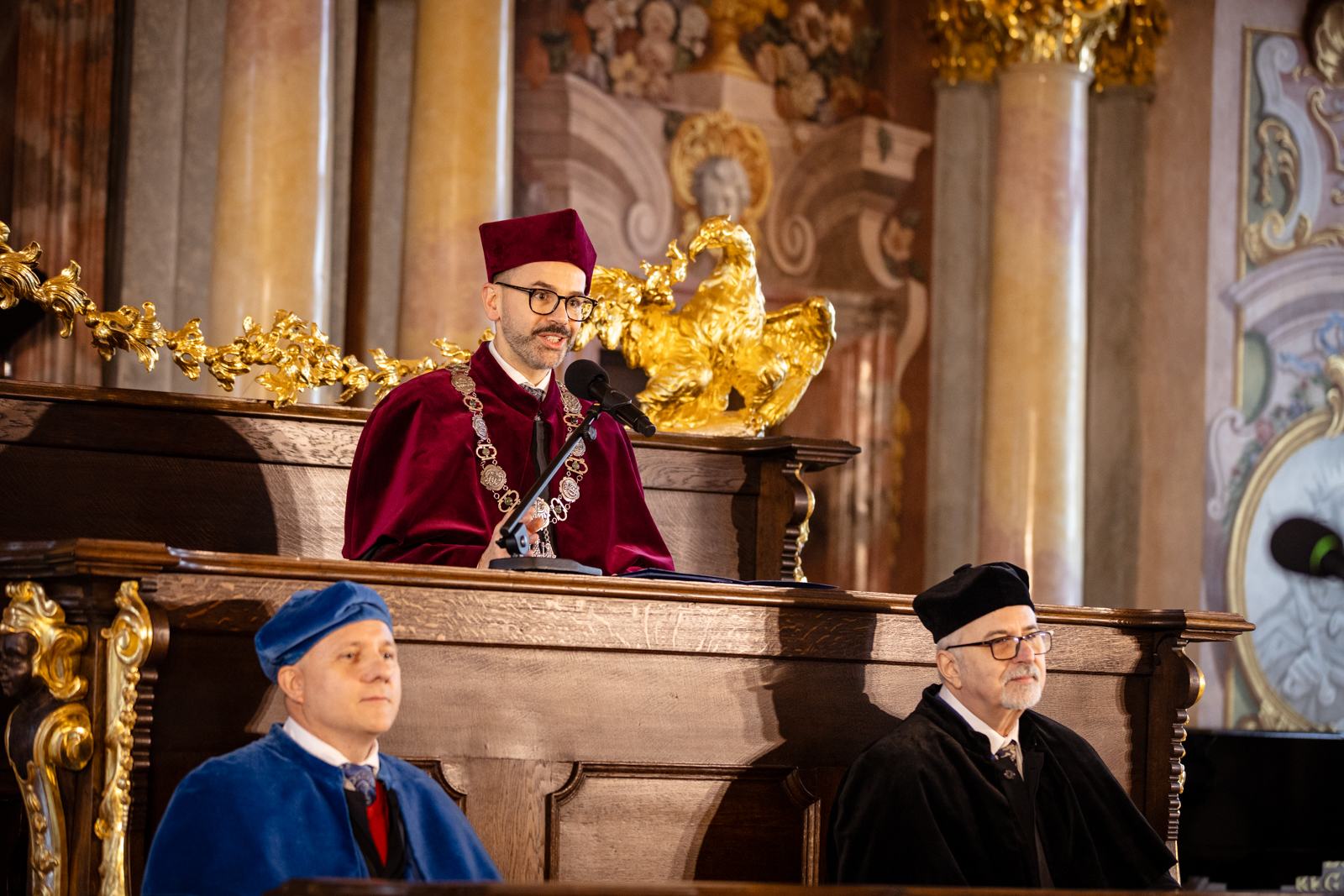
Following the official part of the event, a meeting with the Philologists and Philology students took place.
Here is a brief report on Professor Luigi Marinelli’s lecture titled “Philology in the Age of Artificial Intelligence.”
“A text is a testimony in time of the person who created it…” (Marinelli, 2024, citing Graciotti, 2008).
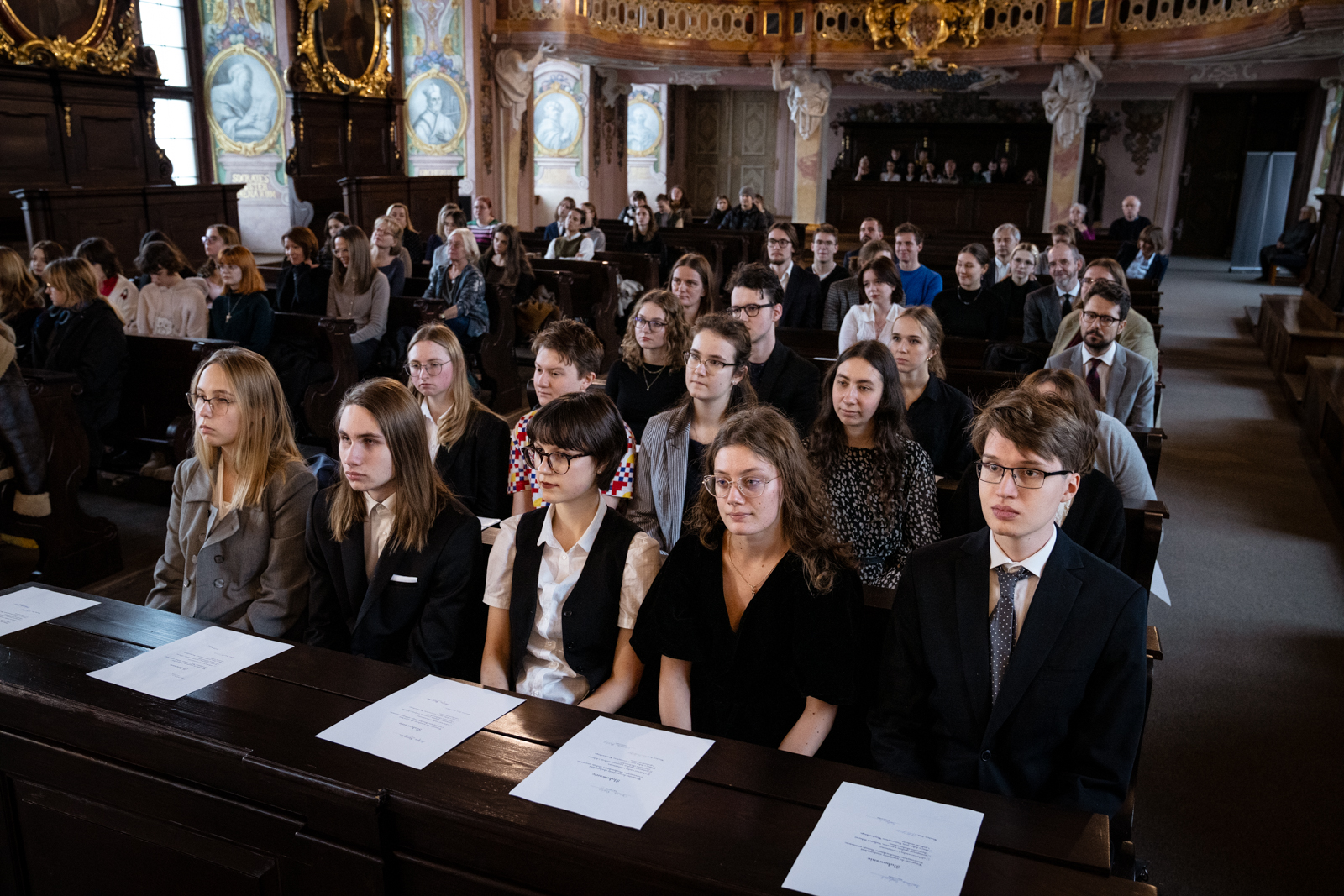
In the university alphabet, inauguratio comes from Latin and means “beginning” or “dedication,” while immatriculare refers to the act of admitting new students. Both events are marked by formal ceremonies, though the song that accompanies them—Gaudeamus igitur—has evolved over the centuries. What began as a festive drinking song sung by medieval students has gradually transformed into a solemn anthem of academic communities, where its once jovial “dark humor” now serves as a philosophical warning:
Vita nostra brevis est,
brevi finietur,
venit mors velociter,
rapit nos atrociter,
nemini parce tur.
[Our life is brief
Soon it will end.
Death comes quickly
Snatches us cruelly
It spares no one.]
The motto of the ceremonial inauguration of the new academic year at the College for Interdisciplinary Studies—held on November 28, 2024, in the 21st century of our faith and excessive worship of the “ego”—was WORD and the LOVE for the word. A message for future generations, a warning to ourselves, in the race against the machine…
“A text is also a testimony of the context in which it is embedded.” (Marinelli, 2024, citing Graciotti, 2008).
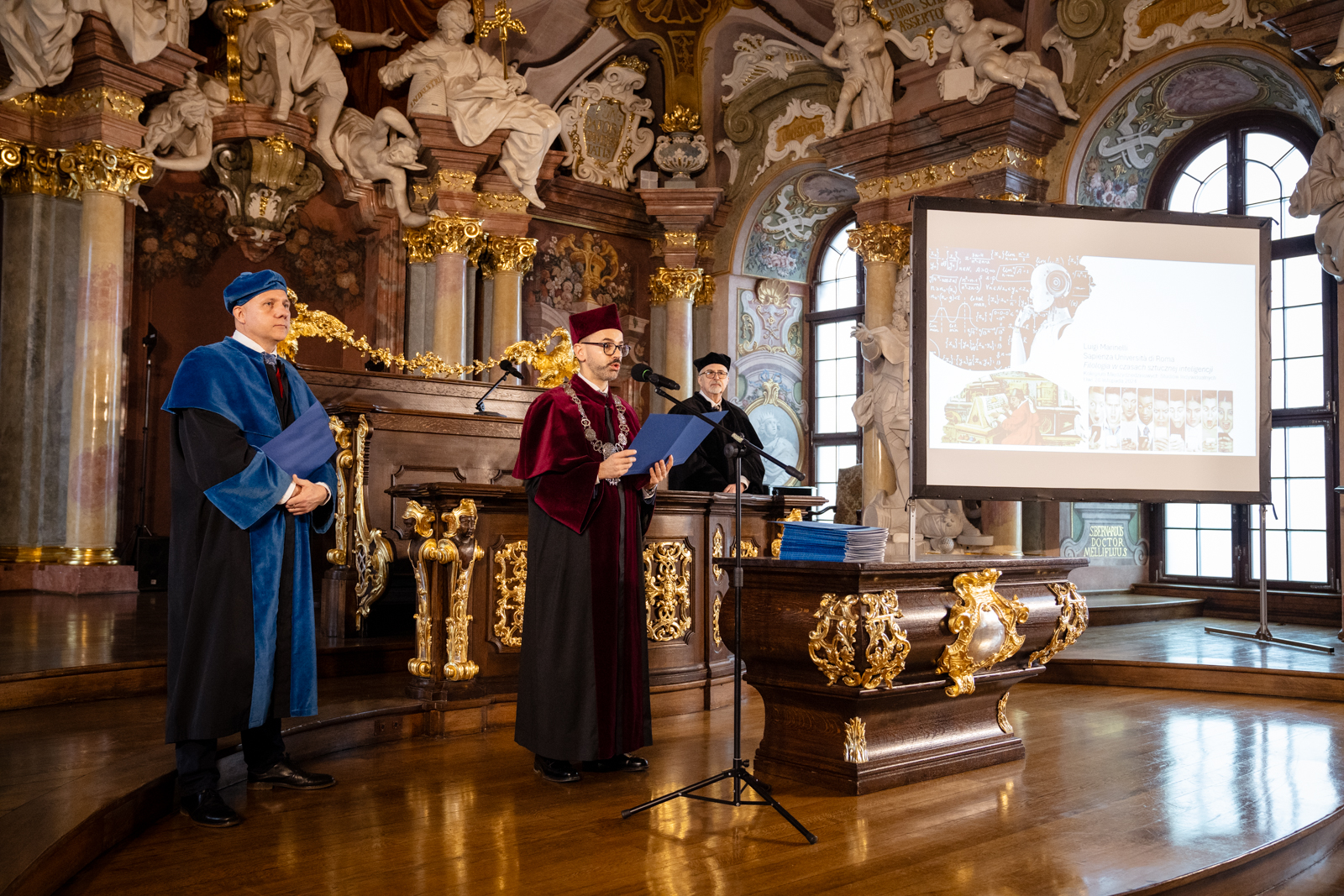
An attempt to explain the meaning and function of PHILOLOGY in the age of artificial intelligence was undertaken by the distinguished Polish studies scholar and translator of Polish literature – prof. Luigi Marinelli from the University of Rome “La Sapienza.” However, it was not a mare soulless chronicle of an etymological-semantic fact, but rather an expression of longing, desire, and hope – a direction of thought and a pretext for conversation.
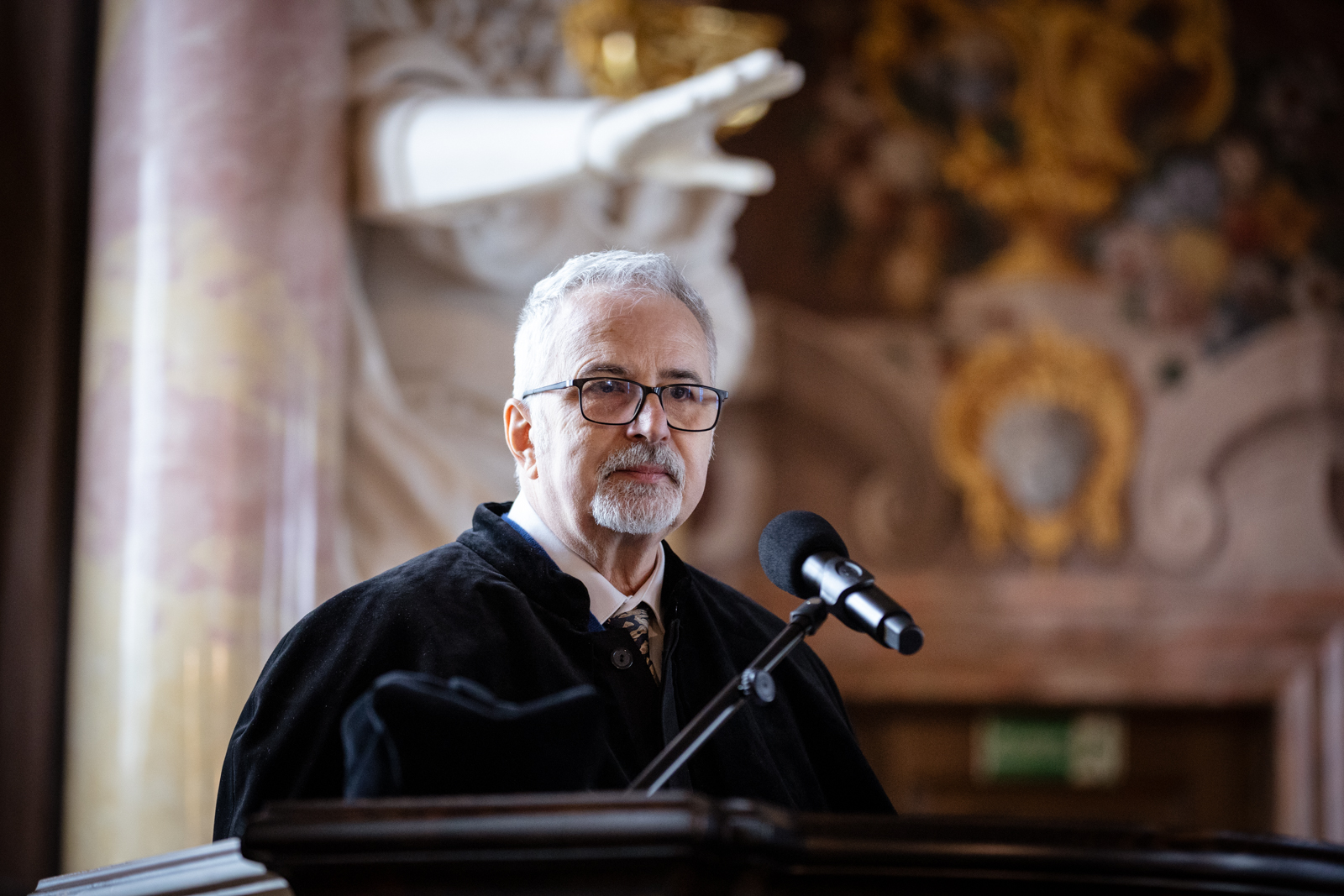
What is philology and what is it for?
The lack of a definitive answer to this question is, in itself, a true lesson in the art of doubt:
“Philology, after all, as a method moves right in between truth and error, and that proper middle ground can only be DOUBT” (Marinelli 2024).
“Every Aeneas needs his Virgil”—someone to translate deeds into words. Passing a text from one person to another – from one language to another – from one era to another is pure joy – the joy of discovering, recording, and preserving history.
- Philology as a CRAFT: “A tailor-made suit for the client, yet cut by the hand and temperament of the artisan (Marinelli 2024 [after:] Graciotti 1929).
- Philology as a PEACEFUL BATTLEFIELD: Classically understood philia is a form of friendship, a brotherly love based on loyalty and mutual trust. It is the feeling shared by warriors—before, during, and after battle.
“Philology is a peaceful battlefield, where the philologist and the text fight on the same side—for meaning, for a possible shared truth, and for emotion” (Marinelli 2024).
3. PHILOLOGY vs. IDEOLOGY — or, the question: WHO WILL CONTROL THE CONTROLLER: A machine does not enjoy, feel moved, get irritated, laugh, or grieve over a text. An “authentic lesson in verse” versus a process of processing and controlling. Who will assign the verse a “better,” “greater” meaning?
Who, one day, will stand up and say: “It’s the machine that is wrong”?
4. PHILOLOGY is a humanistic, human, democratic, and moral science.
“The philological act of reconstructing and understanding another’s text is a dialogical act, an act of shared responsibility, compassion, and love between people – it is an act of philia” (Marinelli, 2024).
5. Philology “does not dig graves, but resurrects the dead.”
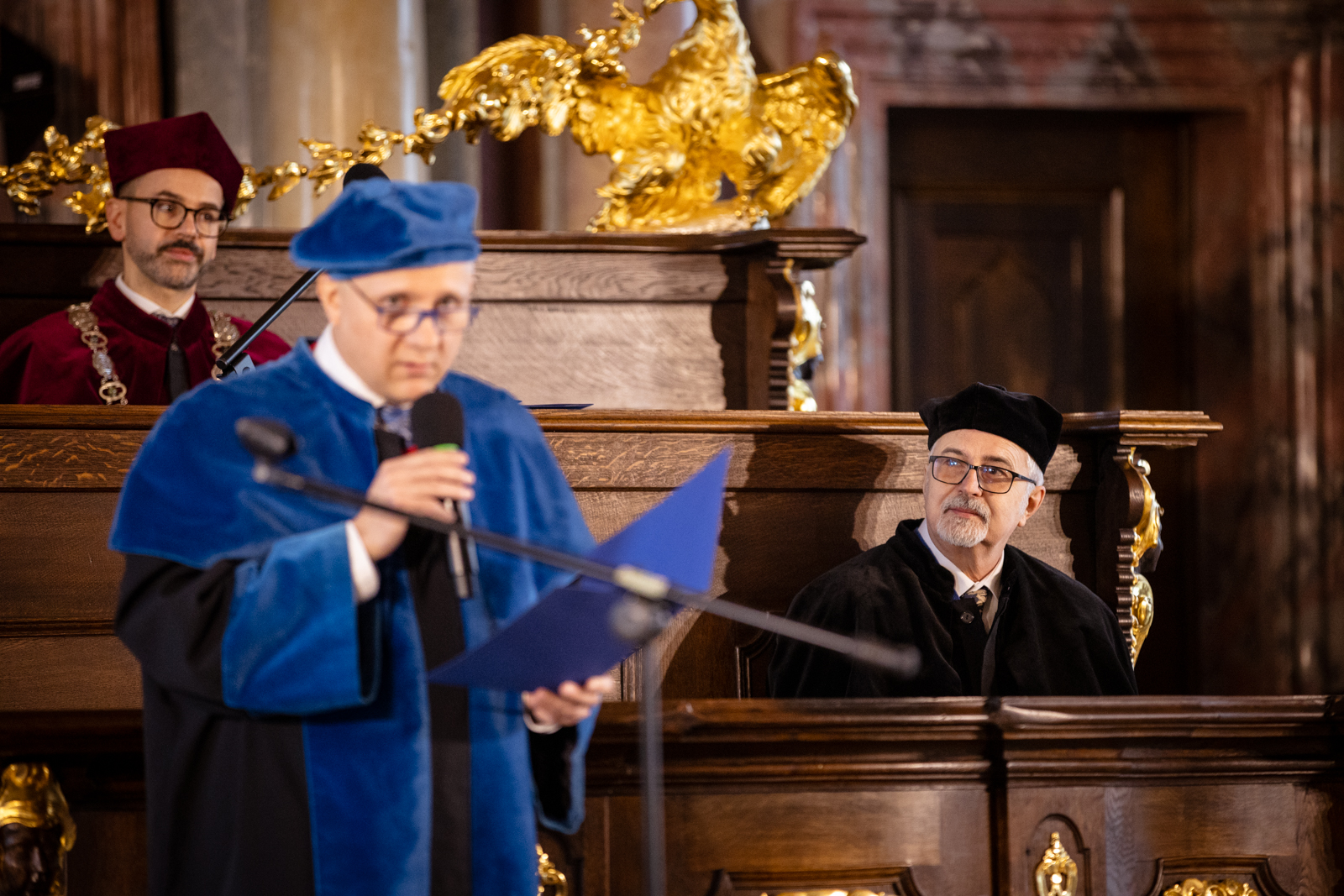
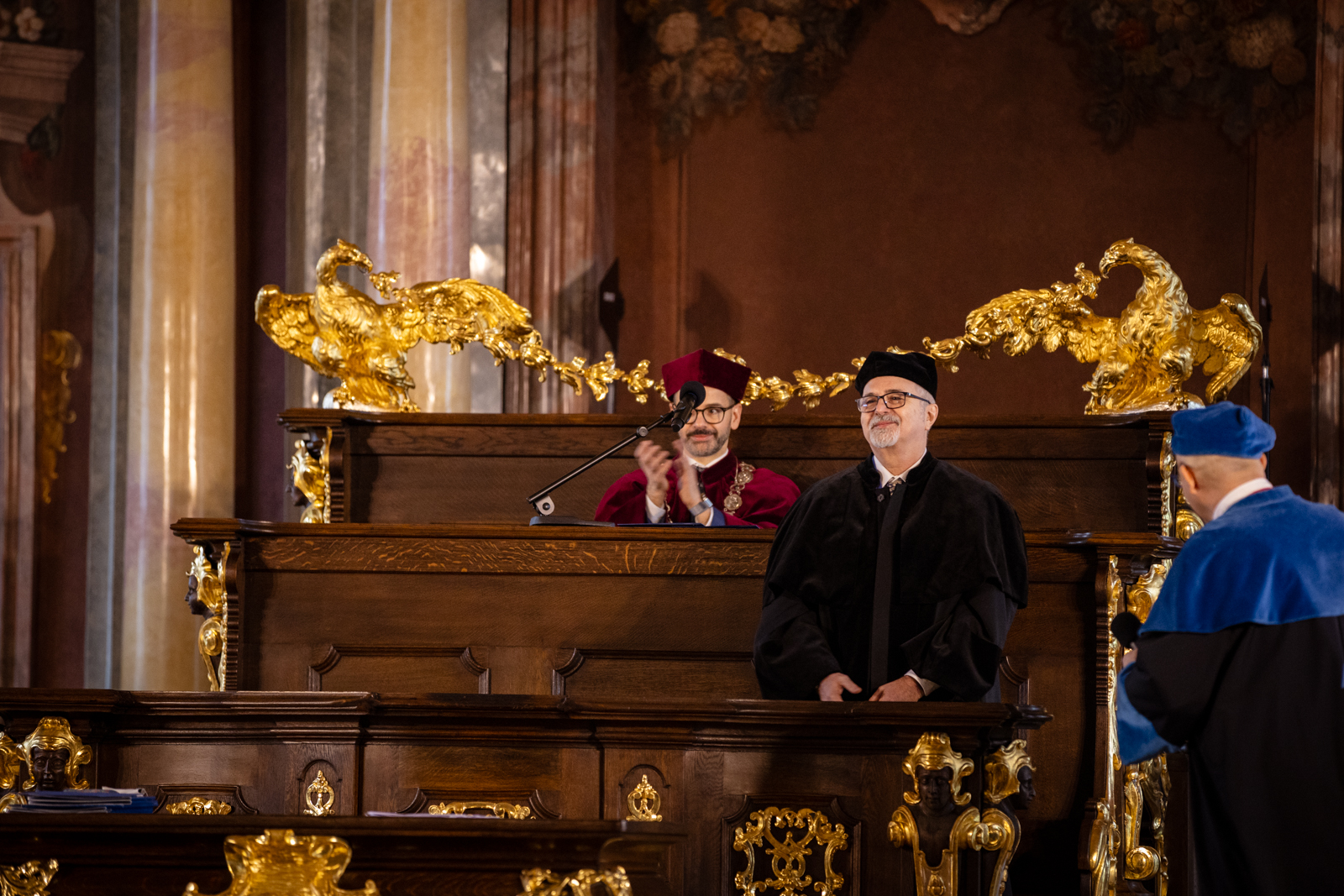
What survives – survives in the text
Philology is “the study and understanding of history through the study and understanding of texts” (Marinelli 2024 [after:] Graciotti 2008). It involves inscribing texts into human memory – into the memory of the nation – into the RAM memory – into the memory of humanity. It is not only important to read, but to read repeatedly. This is a safeguard against superstitions, destruction, and distortions.
“Be engaged in life, in what you do!”
Luigi Marinelli
Łukasz Prus
Piotr P. Chruszczewski
(November 28, 2024)
Epilogue:
“The diversity of languages promoted the diversity of nations and wars, so the world returned to Latin.” (Jorge Luis Borges [1975] 1980, The Book of Sand)
Quod felix, faustum fortunatumque sit.
For more information, visit the website of the UWr College for Interdisciplinary Studies.
Photographs: Paweł Piotrowski
Date of publication: 29.11.2024
Added by: M.J.
Translated by Valiantsina Trafimuk (student of English Studies at the University of Wrocław) as part of the translation practice.


